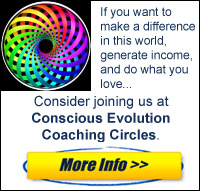Why Forgive?
2011
David Beale, a long time spiritual friend from Perth, Australia, has a brilliant and penetrating mind. Years ago, he offered a wonderful analogy for understanding forgiveness:
The yin-yang, though symbolic, does sum up the harmony that averages to nothing when taken over a wide enough viewpoint. …. A hurricane that goes in both directions may in sequential time do lots of damage yet the net average is No Wind ….
David went on to note that to forgive, we must have a sense of both:
- It does not matter because it can and does add up to nothing; and
- In this physical life, we have an obligation to change both ourselves and the elements of disorder so that they balance and no longer bother us, “allowing us to enjoy our temporal existence with minimal disruption and maximum joy …. we are individuals growing in a limited environment so as to better enjoy a less limited environment. Forgiveness is part of the less-limited environment. (Emphasis supplied.)
In short, there is no need for forgiveness and yet every need for forgiveness. What in the world do I mean by that paradoxical statement?
In what sense is there no need for forgiveness?
Each of us physical human beings births onto this planet with limited perspectives, limited bodies, physical needs for food, water, and shelter, and emotional needs for love and belonging. Baby Mary cries because she is hungry or cold or has a bubble of air in her belly. Her perspective is limited to her own immediate needs. She doesn’t understand that Mommy may be exhausted from cooking, cleaning, washing clothes, and caring for her brothers and sisters. She knows nothing about the sixteen hours per day that Daddy spends in a coal mine to provide a few dollars to buy rice and beans. Maybe she doesn’t even know she is hungry or cold or needs to burp. She just knows she hurts. She cries because that is all she knows how to do. She has done the best she knows how with the limited resources she has. Mommy is doing the best she knows how. So is Daddy. There is no need to forgive any of them, even though they live in desperate poverty and pain. They are all doing the best they can with the resources they have.
In what sense is there every need for forgiveness?
As Mary matures through youth and adulthood, the pain continues to gnaw at her gut. Now she notices that not everyone is hungry or cold or without shelter. As she becomes aware of her external world, her pain turns to anger. She may resent those who have more food and better shelter. She may blame her parents for their lack of education or the fact that they haven’t always been able to respond to her needs. She may come to hate other children whose parents can afford to buy them nice clothes. Her boyfriend may leave her for another woman, betraying her trust. Her internal pain and external anger may generalize to labeling all men liars and cheats, even though she has had personal experiences with only one or a few. Worst of all, she may hate herself because she feels powerless.
Pain and anger are simply different forms of the same energy. Pain is negative energy directed inward. Anger is negative energy directed outward. It doesn’t really matter where the negative energy is directed. The challenge for each and every one of us is how to release the negative energy and transform it into positive energy, or at least into neutral, detached awareness.
Mary’s adult condition is the human condition that Buddhists call “suffering.” Suffering is not necessary and can be released. At this point in Mary’s life, there is every need to release suffering. There is every need for forgiveness.
Forgiveness is one of many spiritual tools we’ve been given to transform our pain and anger into deep, personal, inner peace.
Why forgive? Certainly not because the other person deserves it. In their own misery, desperation, and low self-esteem, they may have done horrible, ugly things that felt like knives through our hearts. Perhaps they lied because they were ashamed to tell the truth. Perhaps they murdered. Perhaps they committed adultery or stole our physical possessions. Perhaps they were simply not present in their relationships with us.
Their actions were certainly not functional. We do need to pay attention to how others treat us and conduct themselves in their relationships with us. If we don’t notice what others do and how it makes us feel, we haven’t learned the relationship lessons we were intended to learn.
However, we never change the relationship by changing the other person. We change the relationship by changing ourselves.
Why then forgive? We forgive for ourselves. We forgive because forgiveness releases our own pain and anger, changes our relationship dynamics, and allows us to move forward in freedom and joy.
Holding onto pain, anger, and blame destroys each and every one of us. It makes us sick. It keeps us stuck. Anyone stuck in this negative energy and unable to let it go will eventually kill themselves as well as all the loving relationships that surround them and could support them. Being stuck in negative energy condemns you to a life lived in hell (using Christian words) or a life of suffering (using Buddhist words).
So why do we forgive? We forgive to shift our own energy from hell to heaven (Christian terminology). We forgive to release our own suffering (Buddhist terminology).
First, we forgive ourselves, knowing that we did the best we could with the resources we had. Then, we forgive others, knowing they did the same. Forgiveness does not mean staying in abusive, dysfunctional relationships. If we learn the lessons our pain and anger have taught us, we move out of abusive, dysfunctional relationships and seek out relationships that support us. When the abuser no longer has a victim, the abuse stops.


Comment